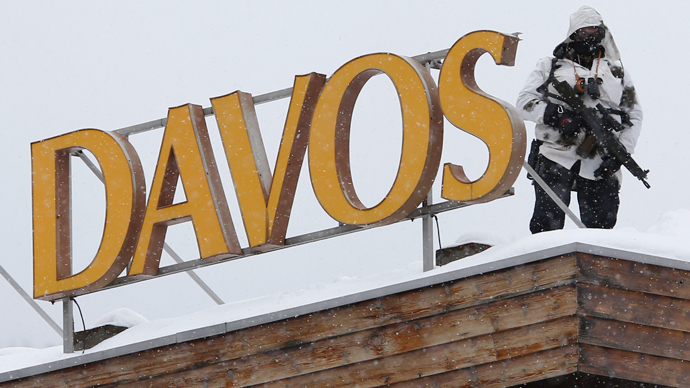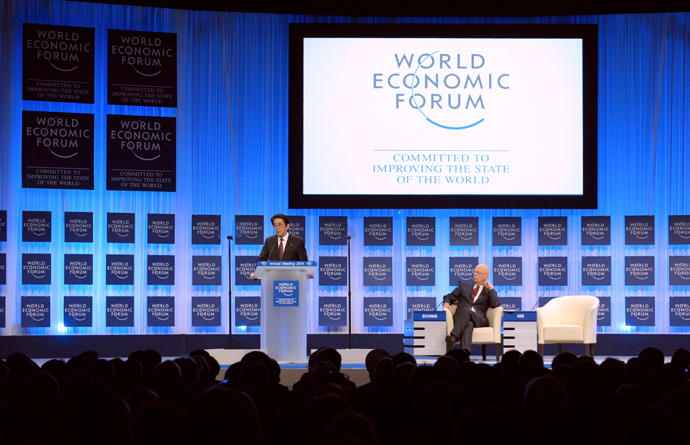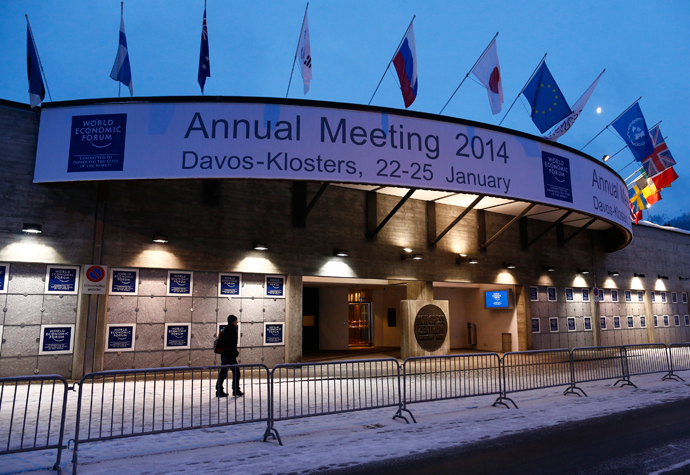Day of reckoning for ‘Kickcanistan’?

The West risks disaster, having persistently kicked the fiscal can down the road: strangely the Davos meeting barely mentions the folly of QE ‘funny money’.
The annual pilgrimage to Davos is in full swing yet there appears to be little appetite amongst the world’s top executives to address the elephant in the room: the cowardly avoidance of Western governments towards responsible budgeting.
When the history of the last decade is written, it will be difficult not to discuss the crazed hubris and idiocy of incumbent politicians. At the peak of the bubble, Britain’s feckless Finance Minister-turned-Prime Minister Gordon Brown even earnestly deluded himself that he had eradicated the cycle of boom and bust! Meanwhile, a US policy of housing for all resulted in the insanity of Fannie Mae and Freddie Mac who, liberally aided by the banking sector, created a crazed boom.
However, this is only one element of a much larger historical sweep which began at the end of World War II. As the Cold War developed, Western Europe built a third way approach between capitalism and socialism where the state had significant control over many parts of the economy.

Post-war Europe began an enduring love affair with big government - nowadays Europe is 7 percent of the world’s population, 25 percent of its economy and an utterly unsustainable 50 percent of welfare spending (500 million people share as much welfare as 6.6 billion others!).
The USA, having expanded government spending for decades, faces an increasingly unsustainable debt/GDP ratio above 100 percent (60 percent is deemed a decent high-water mark). President Obama has accelerated a massive long-term trend as both Republicans and Democrats have liberally extended the US pork barrel.
Economists have deployed the term ‘Kickcanistan’ for any nation stubbornly believing central spending can cure all ills and ultimately control the economy. The fact that widespread spending ends with contemporary North Korea (or the collapse of the USSR) is anathema to acolytes of indiscriminate government spending.
The significant acceleration of public spending in the wake of the 2008 financial crisis has rendered the debt mountain largely unsustainable. Even nominally right wing governments have expanded spending - Britain is still borrowing more than ever despite claims of austerity. Growth in spending has slowed, but government is still kicking the can down the road.
The European Union looks to have survived its currency crisis. However, the festering sore of a deeply flawed Euro project remains at the heart of the EU. Brussels’ accounts have not been signed off by the auditors for years. Just before Christmas the EU lost its ‘AAA’ investment grade: the Brussels elite remained blanketed in denial, a key facet of Kickcanistan governance.

The crazed dash for a united Europe has left millions unemployed with Western EU states largely becalmed despite growth elsewhere. That said, towards the end of 2013, the recovery looked encouraging in the USA and UK but then again as the USA has been spending $85 billion a month on kindling to help light the fires of economic recovery, it is difficult to believe that the economy is really sustainable without ‘funny money’. The US ended 2013 55 months into an expansionary phase. With the average economic cycle 60 months bottom to top post WWII, this upswing may be closer to the end than the beginning.
Therein lies a huge problem. The West is still engaged in enormous intervention, further bloating total government debt. Vast QE expenditure has at best administered palliative care when Mediterranean patients need intensive care to cure their problems. The risk of relapse is huge while political leadership is scarce.
With municipalities such as Detroit going bust and the euro crisis stubbornly festering below the surface, the Western economic cycle may yet turn down and create another recessionary dip. If so, how can Western powers actually dig their way out this time having long since overstepped a sensible level of intervention? The medicine cupboard is empty.
The prolonged blight of government too scared to spend wisely already threatens current and future generations. Could this be the year when the ability to defy gravity finally eludes the west after almost 70 years of indiscriminate budgeting? Kickcanistan may reach its day of reckoning in 2014.
Strangely the business/political elite is proclaiming recovery over champagne and canapes at Davos making little or no mention of the Kickcanistan conundrum. Remember, they were similarly optimistic in 2008.
The statements, views and opinions expressed in this column are solely those of the author and do not necessarily represent those of RT.
The statements, views and opinions expressed in this column are solely those of the author and do not necessarily represent those of RT.












